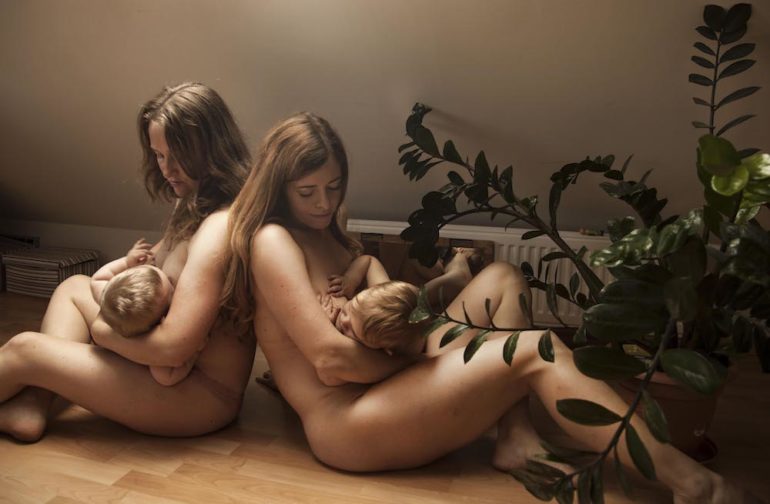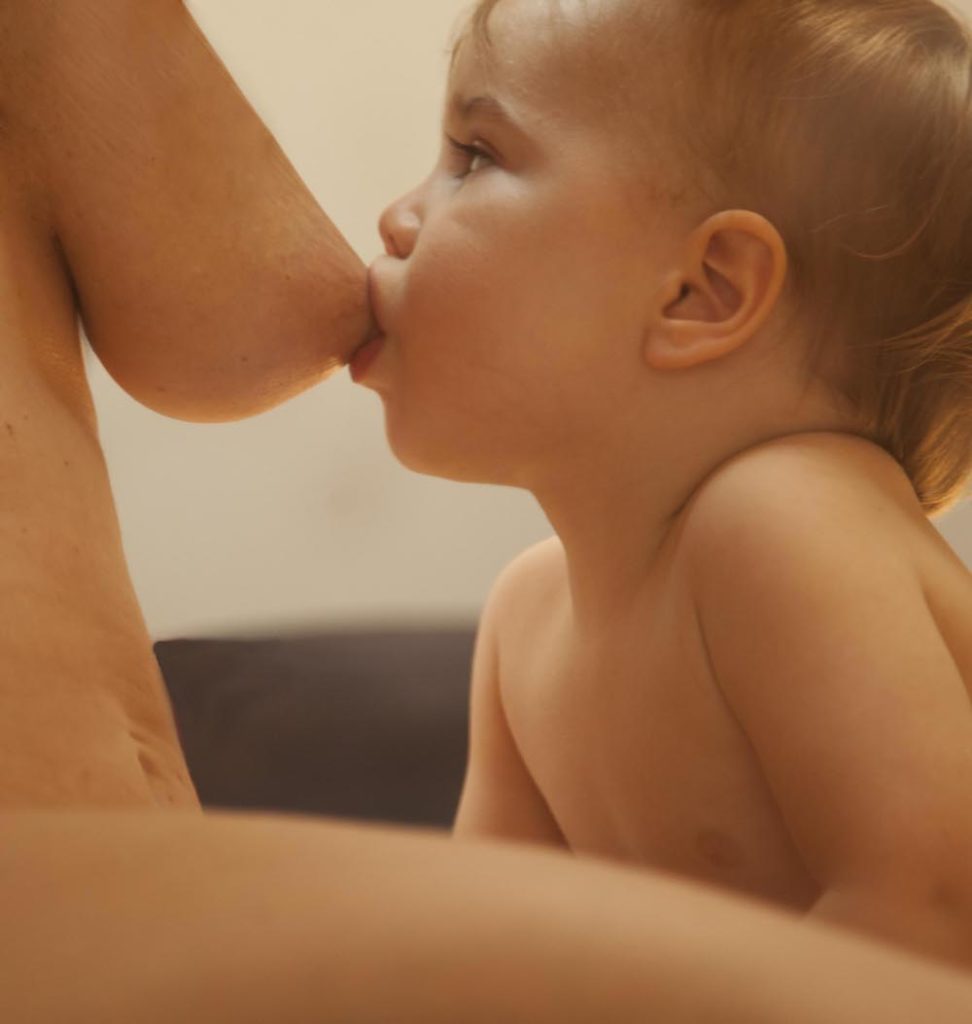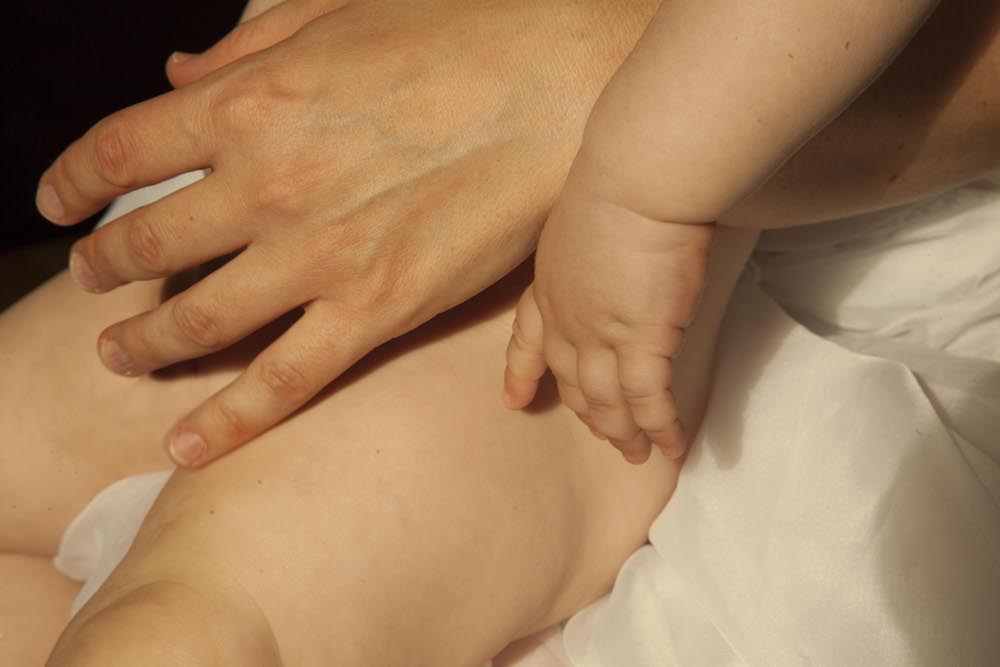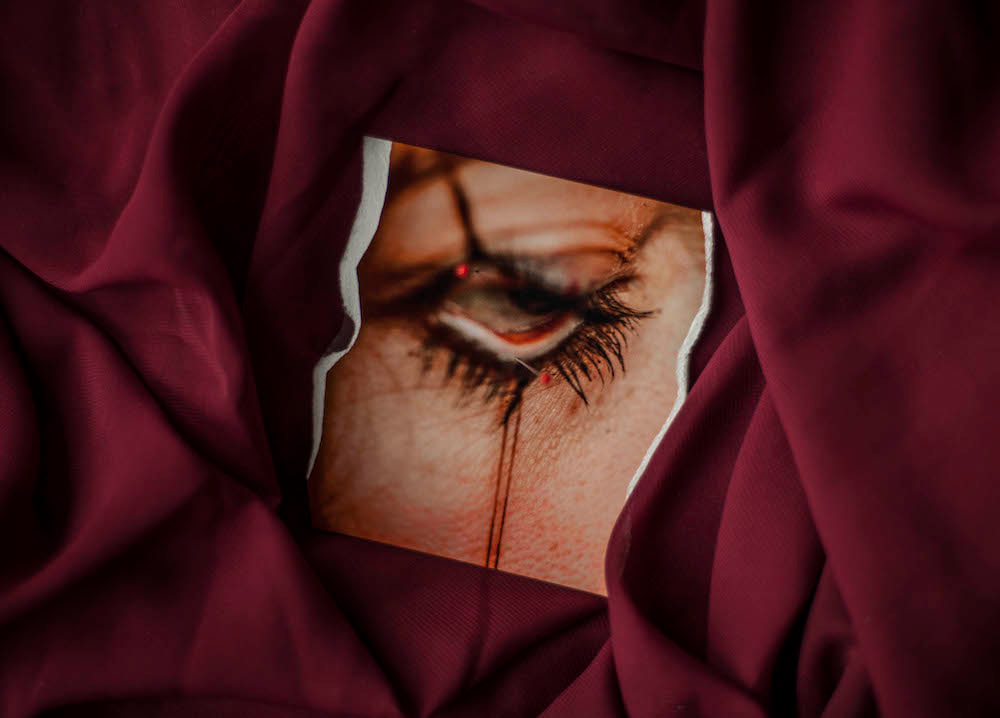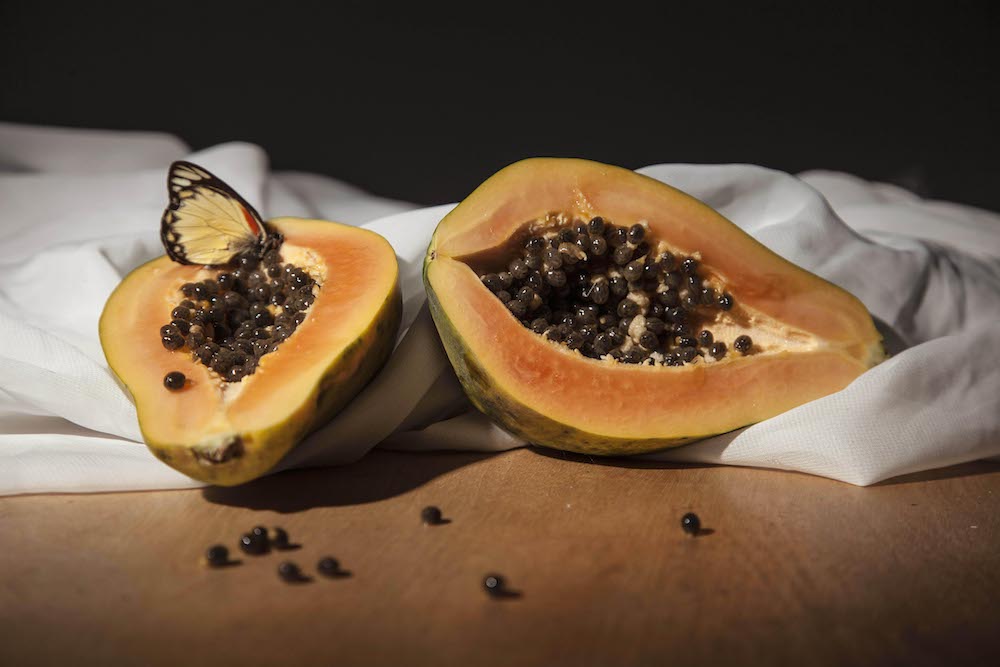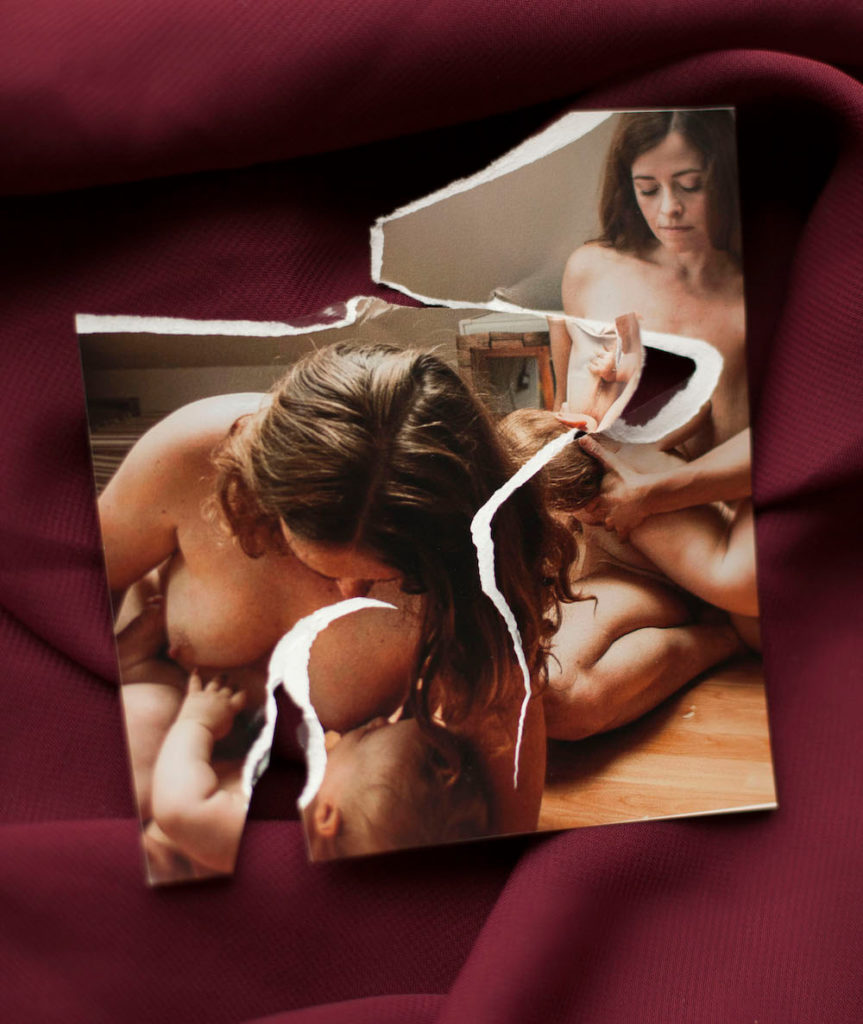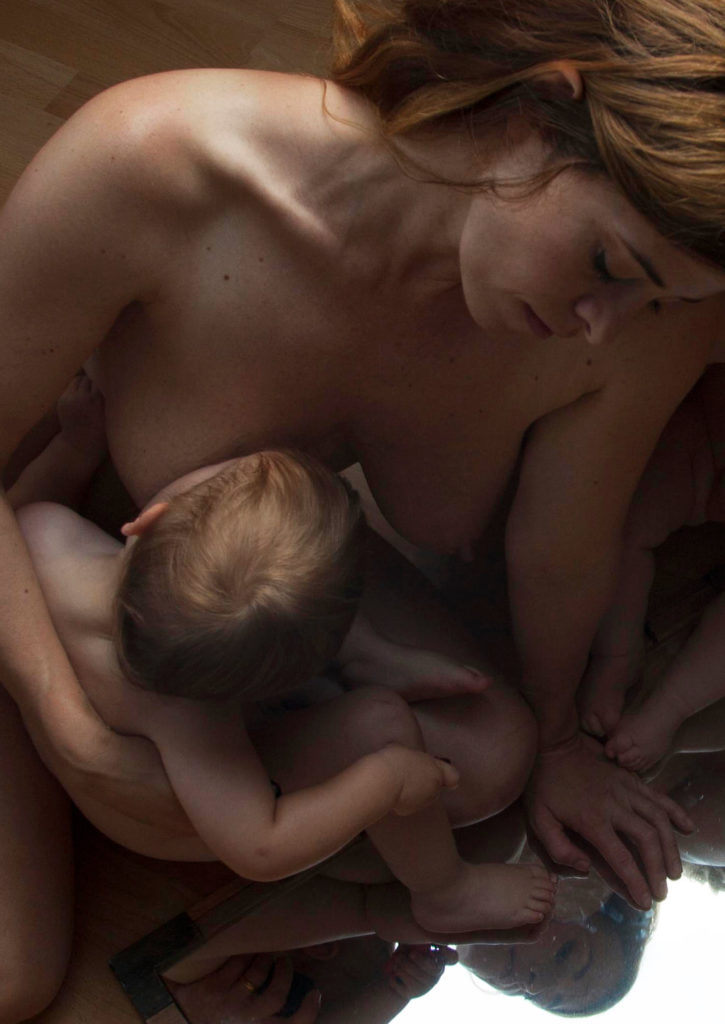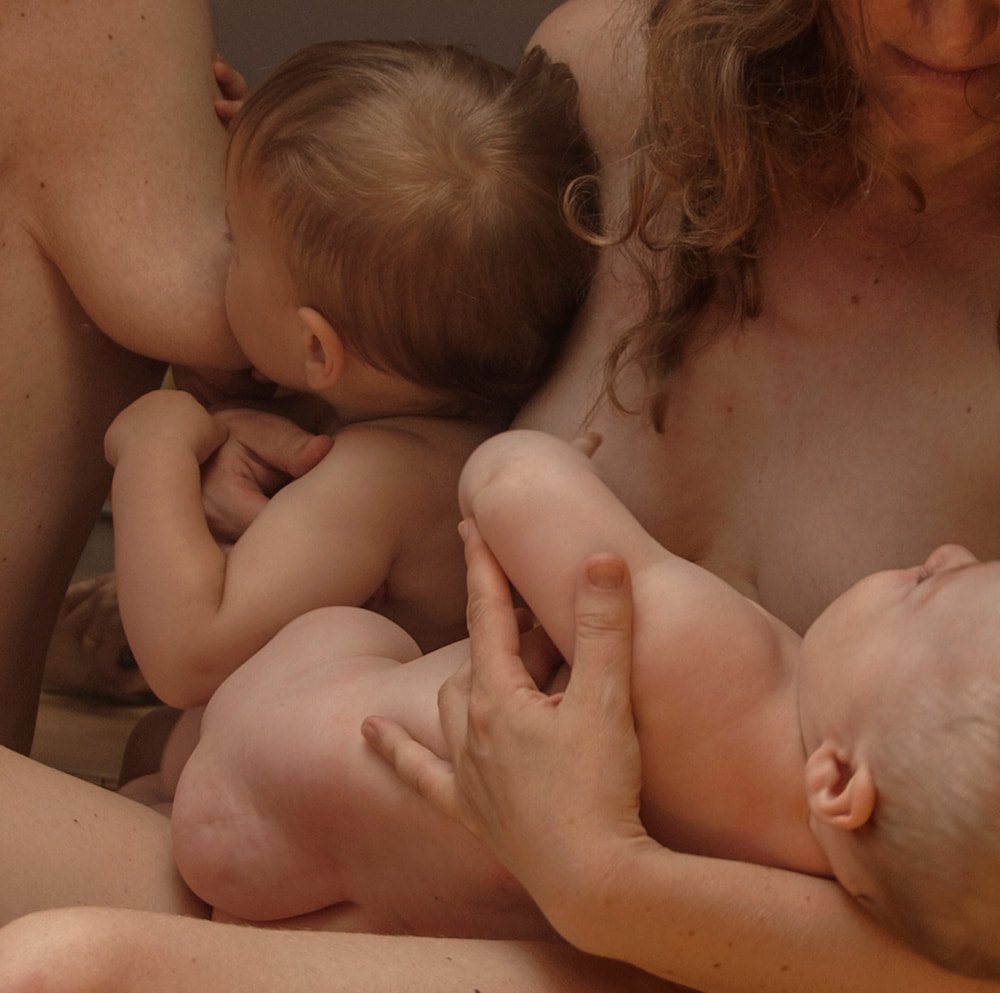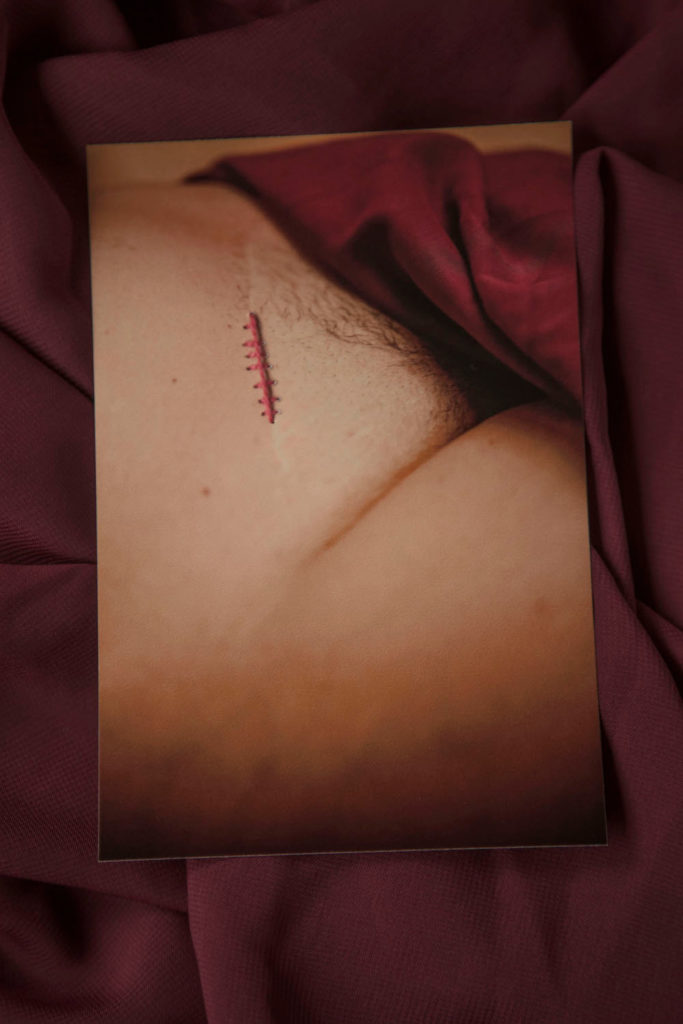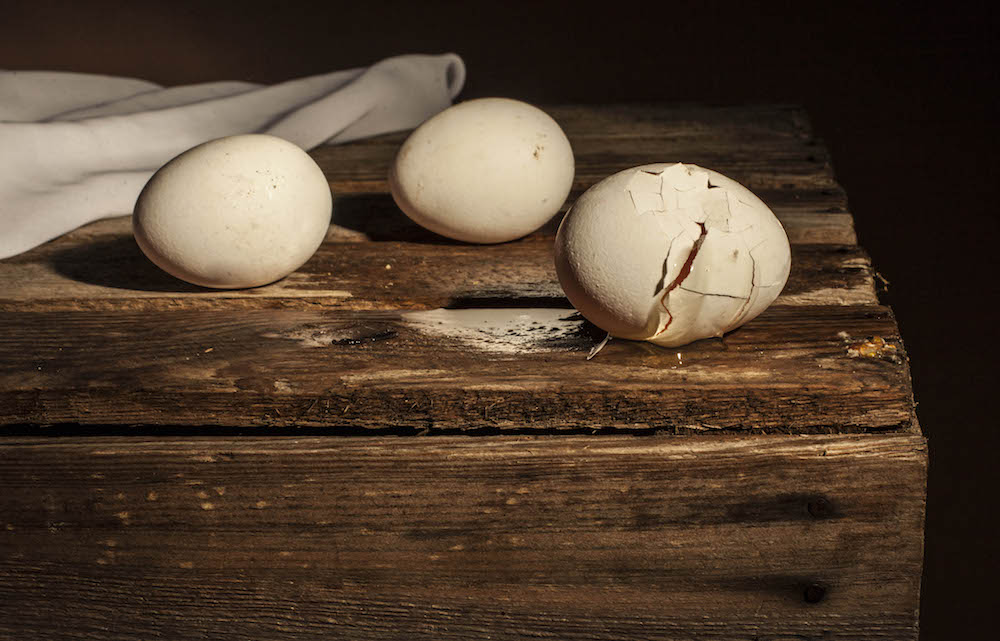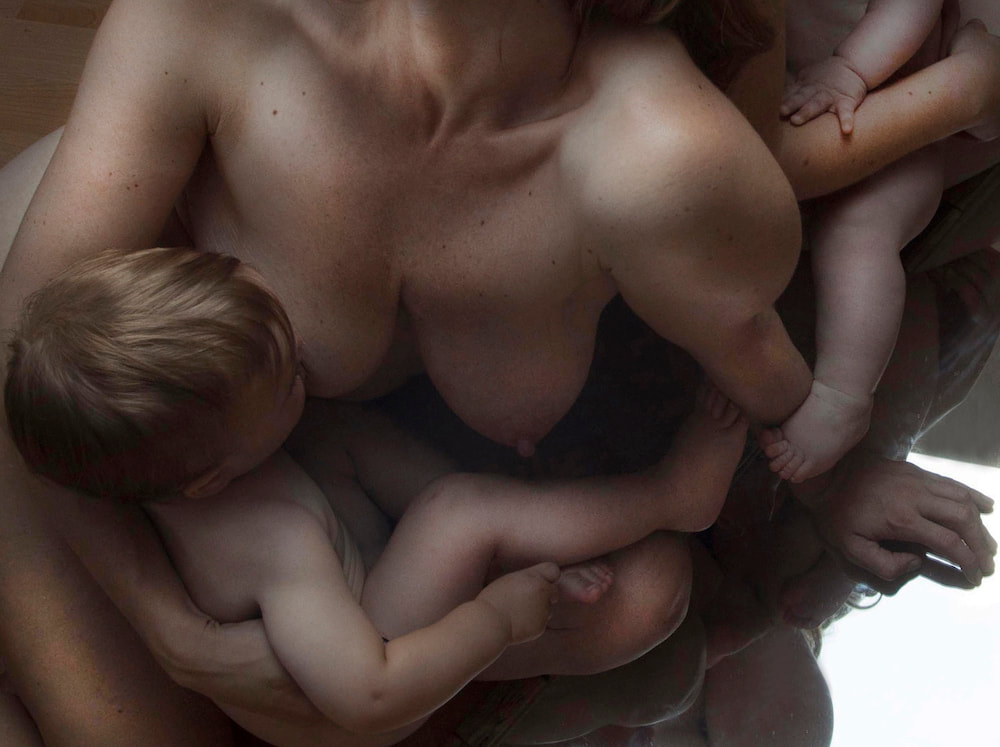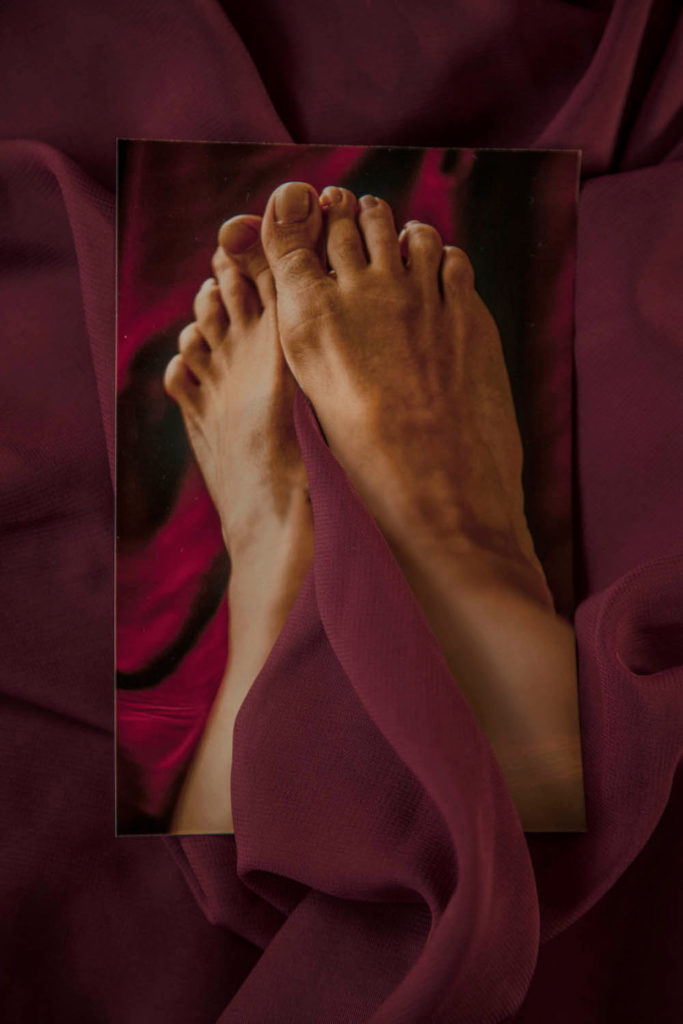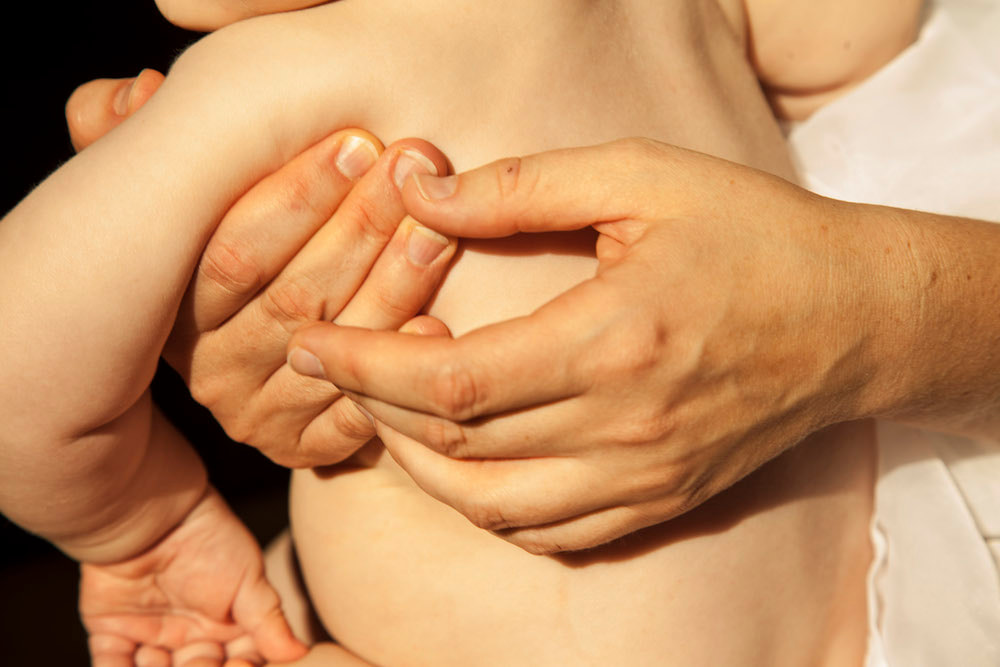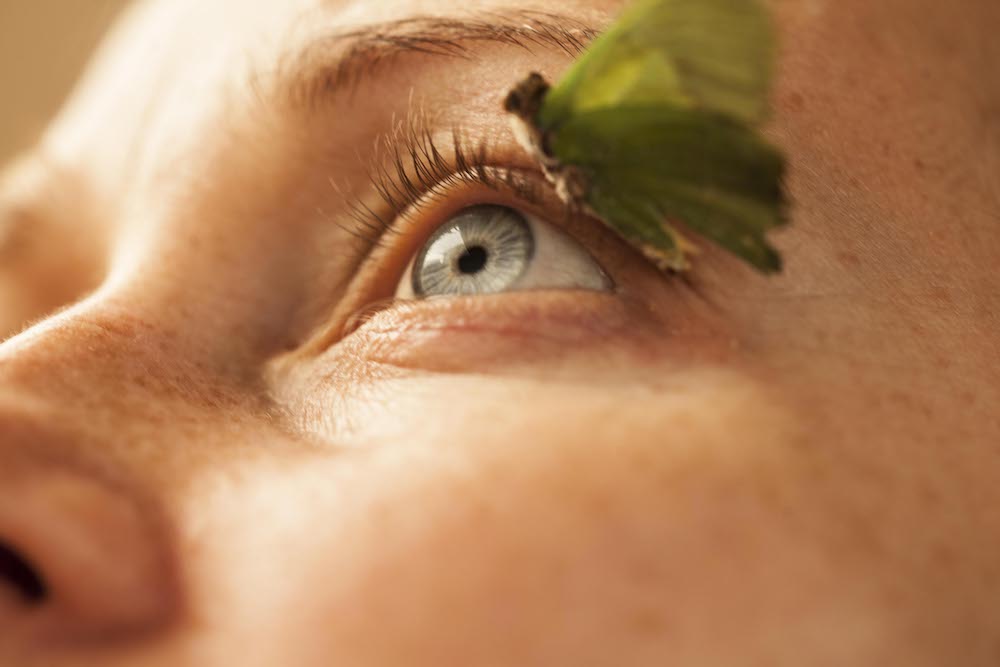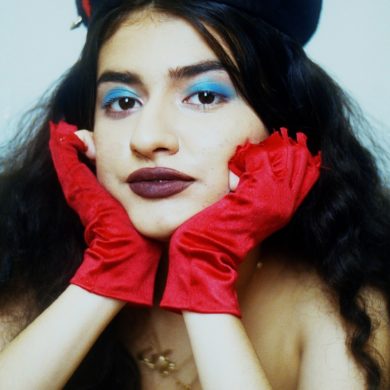Photographer Alina Gross and sociologist Olga Galanova were inspired to conceive this interdisciplinary storytelling ‘Birth Of Mother‘ after becoming mothers and experiencing a series of new and strange ambivalent feelings – ranging from melancholy to euphoria and everything on the spectrum between happiness and sadness.
“Each birth is simultaneously the birth of the mother. This project reprimands the stereotypical mainstream euphoria around baby cuteness and sheds light on the postpartum life we experienced ourselves as mothers.”
The following quote by the late Peter Lindbergh expresses exactly their intention to start this project: “When someone creates something: a painting, a poem, a photograph, the creativity comes from an idea, from a feeling, from emotion, or from a combination of ideas, feelings and emotions that are somehow ‘reborn’ from all our experiences and perspectives. Creativity is the desire to express ourselves. To formulate these expressions, we have to draw from our reservoir of experience, dreams, desires and experimentation and mix together what was, what is, and what could be… “
“We were enthusiastic about this revelation of Lindenbergh’s and embarked on a search for methods to induce the ‘rebirth’ of our experiences. We believe that photography as a medium helps people to hold on to their valued ideas, meaningful feelings and unique emotions forever. But images are never just “immutable mobiles” (Latour). They are changing and they change our life. For us, photography is also a powerful tool for a deep self-reflection and personal development.
This process, from the freezing in time of our experiences to the self-reflection and in some sense, the self-therapy that came with it, was very important, fascinating and special to us. We translated this idea into a “three-stage” method of everyday epistemology and self-rebirth.
At first, we photographed our most beautiful, emotional and colourful moments in daily life. Then we went deeper and began to experiment with different visual genres. Finally, we continued to work with our printed images and used various creative methods of self-expression. The result of our fruitful work was this sequence of images. Some pictures depict a romantic mother-child relationship, physical closeness and intimacy, while others show pain, self-dissolution, isolation and excessive demands. We also captured special scents (such as the smell of sulfur and papaya) and compositions, experimenting with various genres including documentary, portraiture, staged photography, still life and installation.”
“We attempted to convey feelings of ambiguity, disruption and inner conflict through creatively tearing the printed images. We experimented with metaphors and hyperbolas. The paradoxes we observed in our work were: the more we exaggerated our feelings with the help of creative art, the deeper we understood our raw feelings and were stronger. And, the more we brought a socially untypical ‘victim’ role of the mother to light, the more we freed ourselves from the role of victim.
In undertaking the work on this project we had a very hard journey. From the beginning we were somwehat ashamed of the truth in having baby blues and negative postpartum emotions. This brought us some uncertainty in our role as mothers. But in the daily exploration of our new social role and of the changes in our personalities through the visualization of our associations with newly discovered smells, sounds, shapes and colors, we were able to overcome all our ambiguities and hesitations leading to our rebirth as mothers.
Moreover, this work of art become something more than a kind of self-acceptance and self-birth as mothers. On the one hand, the project revealed that our society prefers to see the maternal role through a beautiful façade and in this way supports a female victimization. On the other hand, our examination of the aesthetics of the raw manifestations of life after birth strengthened our critical attitude towards the contemporary, superficial and idealized image of motherhood imposed by mass culture and consumption and enhanced our understanding of the role of motherhood behind the beautiful façade.”
https://alina-gross.com/


